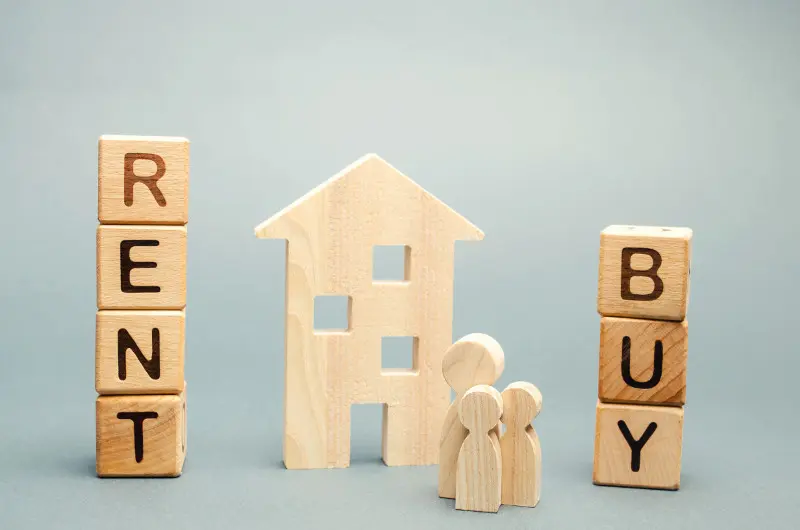Staircasing | Shared Ownership | RICS
All leaseholders of Shared Ownership properties have the right to buy further shares in the property in which they reside, which is a process called ‘staircasing.’ This article explains staircasing and how it can benefit you. We’ll also provide step-by-step instructions on how to increase your share.
At Harding Chartered Surveyors, we can provide market valuations for staircasing as well as offer impartial property advice. We can also recommend reputable solicitors who are familiar with the staircasing process. Discuss your needs with our RICS-registered valuers today by calling 020 3598 6730.

Equity Valuations for Shared Ownership
Staircasing - A Step by Step Guide
Step 1: Instruct a RICS-registered Valuer to Provide a Property Valuation
You can choose your own valuer to determine the current market value of your home, provided they’re a member of the Registered Institution of Chartered Surveyors (RICS). You may need to provide your surveyor’s details to your housing association, which may set certain guidelines regarding how the valuation is undertaken.
In most cases, any improvements you’ve made to the property won’t be included in your valuation. You’ll need to let your valuer know of any alterations you’ve made as well as how much you pay in rent and service charges.
The price of the share you intend to buy will be a percentage of your property’s current value. For example, if you already own 50% of a property worth £300,000 and you wish to buy the remaining shares, the price will be £150,000.
Step 2: Arrange Funding to Increase Your Share
You should discuss financing with your current lender or seek advice from an independent financial advisor to determine how many additional shares you can afford. We’re happy to recommend reputable financial advisors if you want to find out how much money you can borrow to increase your share of your property.
Please note that if you change your mind regarding your share increase after your housing association has already instructed their solicitors, delays and penalties may apply. You might also need to obtain another updated valuation.
Step 3: Determine Which Size Share You Want to Purchase
Your lease agreement provides guidelines regarding how many additional shares you can purchase each time you staircase. Usually, you need to increase your share by 20 or 25%. You can increase your share by a minimum of 10%, though your lease may need amending to reflect this.
Most shared ownership homes can be bought outright by their residents. However, some housing associations set restrictions, meaning you might not be entitled to increase your share ownership to 100%. You should seek advice from your housing association to find out which rules apply to you.
You might be required to pay additional stamp duty if you didn’t previously pay it based on your property’s full value. You’ll need to speak to a solicitor for more details regarding stamp duty payments.
Step 4: Find and Instruct a Solicitor
You’ll need to hire a solicitor to finalise the details of your staircasing transaction and handle negotiations on your behalf. We recommend finding your own solicitor for these crucial tasks as solicitors provided by your mortgage lender may not necessarily act in your best interests. Make sure you choose a solicitor who is familiar with staircasing to prevent setbacks and delays. You might want to contact the solicitor you originally used to purchase your shared ownership home as they should have easy access to information pertaining to your property.
Step 5: Send a Copy of Your Lease to Your Housing Association
To start the staircasing process after you’ve decided how many additional shares you wish to purchase, you’ll need to send a scanned copy of your lease agreement to the housing association that owns the remaining shares in your property. If you’ve misplaced your original lease agreement, you can obtain a copy from the Land Registry.
Step 6: Send Your Staircasing Instruction Form to Your Housing Association
Finally, you need to complete a staircasing instruction form and send it along with your valuation and lease agreement to your housing association. Depending on your housing association, you can either send the required documents via post, email or in person.
Remember – your property valuation only remains valid for three months, so it’s important to obtain financing and all other required documents promptly.
What is Staircasing?
Shared Ownership homes refer to properties that are owned by at least two parties, usually the resident and a housing association. The idea is that people who can’t afford to purchase a property outright can purchase a proportion of it. The remaining proportion is owned by the housing association, to whom you’ll pay rent. When you increase your equity share via staircasing, you reduce your rent payments.
You can increase your share of your property incrementally. Each time you staircase, you must increase your share by at least 10%, but you can purchase as much as you wish in multiples of 5%. However, if you purchased your lease before April 1st 2006, you must increase your share by at least 20%.
The larger your share, the lower your rent payments will be to the additional owner. You can increase your share to 100% to purchase the property outright, in which case you will no longer make rent payments. However, depending on your housing association, you may still need to pay ground rent and service charges.
In short, the benefits of staircasing include:
-
You can gradually reduce and eventually stop rent payments to your housing association
-
The more shares you own, the more equity you’re entitled to if you sell your home
-
You can choose your own estate agent to sell your home if you’re the outright owner
-
You can capitalise on any improvements you’ve made to the property if you sell it
If you purchased a shared ownership home before April 1st 2006, You can only increase your share of your property three times after the initial purchase. There are no limits on the number of staircasing transactions on properties purchased after April 1st 2006.
When you wish to buy more shares in your home, the price will depend on your home’s current value, which will likely differ to its value when you originally purchased it.
If you think that staircasing is the right option for you, keep reading below to find out how to do it.
